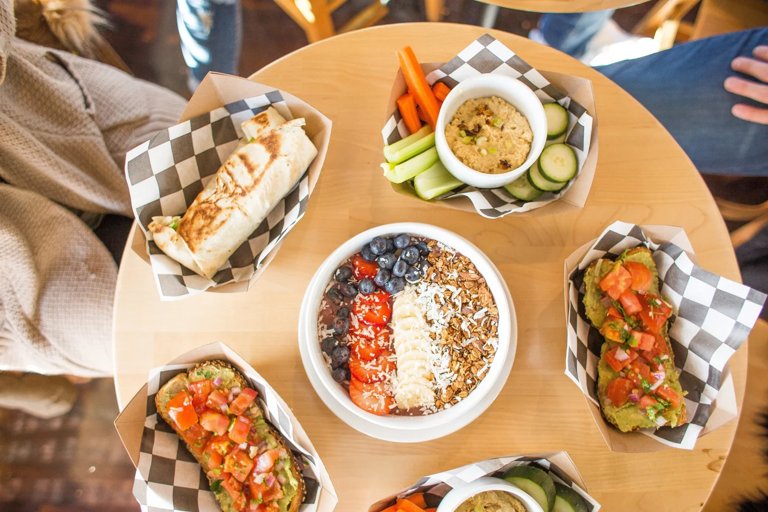Food & Dining
Vegan Options Expand in South West Cafés as Demand Rises Sharply
Independent cafés from Exeter to Truro are updating menus with creative plant-based dishes, reflecting changing consumer habits and a push for healthier dining.
2025-08-20 04:18
By Thomas Keane

Independent cafés across the South West of England are rapidly expanding their vegan offerings in response to growing consumer demand. What began as a niche trend has evolved into a mainstream expectation, with plant-based alternatives now common alongside traditional menus. Owners say the shift is driven by younger customers, but interest is spreading across all age groups, creating opportunities for innovation in even the smallest establishments.
In Exeter, café managers report that plant-based lattes, oat milk cappuccinos, and vegan pastries often outsell their traditional counterparts during busy weekend mornings. The availability of dairy alternatives has not only satisfied vegans but also attracted customers with lactose intolerance and those curious about healthier options. Many cafés now see alternative milks as standard rather than speciality items.
Beyond beverages, food menus are transforming. Chefs are experimenting with jackfruit tacos, mushroom burgers, and dairy-free cheesecakes to appeal to adventurous diners. Seasonal ingredients sourced from local farms are being used to craft unique dishes, giving cafés a chance to differentiate themselves in a competitive market. Customers often share these meals on social media, generating organic publicity and further boosting demand.
The economic case for expanding vegan options is compelling. Research by the Vegan Society indicates that the UK’s plant-based market is worth billions annually, and small businesses are increasingly taking a share of that pie. For cafés struggling with rising energy and ingredient costs, vegan dishes can sometimes offer higher margins, particularly when using creative substitutes in place of expensive meat products.
Cultural influences are also playing a role. With international cuisines becoming more popular across Britain, South West cafés are adopting flavours from Mediterranean, Middle Eastern, and Asian cooking. Plant-based adaptations of falafel wraps, lentil curries, and noodle bowls are drawing a wider audience, including customers who may not identify as vegan but enjoy variety.
Customer feedback has been overwhelmingly positive. Regulars interviewed by The Chronicle Report said they appreciated having more choices when dining with friends or family. For groups with mixed dietary preferences, venues that offer inclusive menus are becoming the preferred option. Several café owners noted that this inclusivity has increased group bookings and repeat visits.
The shift has not been without challenges. Some smaller cafés admit that sourcing speciality ingredients can be costly or logistically difficult, especially in rural areas. Others worry about alienating traditional customers who prefer conventional fare. However, most agree that offering a balance — maintaining classic menu items while expanding vegan options — is the key to keeping everyone satisfied.
Training staff has been another focus. Café workers are being taught to understand dietary needs, avoid cross-contamination, and confidently recommend plant-based dishes. This professionalisation helps establish trust with customers, many of whom are cautious about whether vegan options are prepared properly. The effort is paying off, with positive reviews highlighting both food quality and service knowledge.
The trend is supported by universities and colleges in the region, where student demand for vegan food is particularly strong. Partnerships between campus groups and local businesses have led to pop-up stalls, catering collaborations, and themed food festivals celebrating plant-based living. These events not only increase visibility but also foster community connections between students and independent traders.
Analysts believe the rise in vegan cafés reflects wider shifts in public attitudes towards sustainability. Consumers are increasingly aware of the environmental costs of meat and dairy production. For many, choosing a vegan meal is as much about reducing their carbon footprint as it is about personal health. South West cafés are tapping into this consciousness to position themselves as responsible and forward-thinking.
Looking forward, café owners predict that vegan options will no longer be seen as a separate category but as an integrated part of mainstream menus. With innovation continuing and demand showing no signs of slowing, the South West may soon establish itself as one of the UK’s leaders in plant-based dining culture. For small businesses, the challenge will be to sustain quality and creativity while meeting the expectations of an ever-expanding audience.